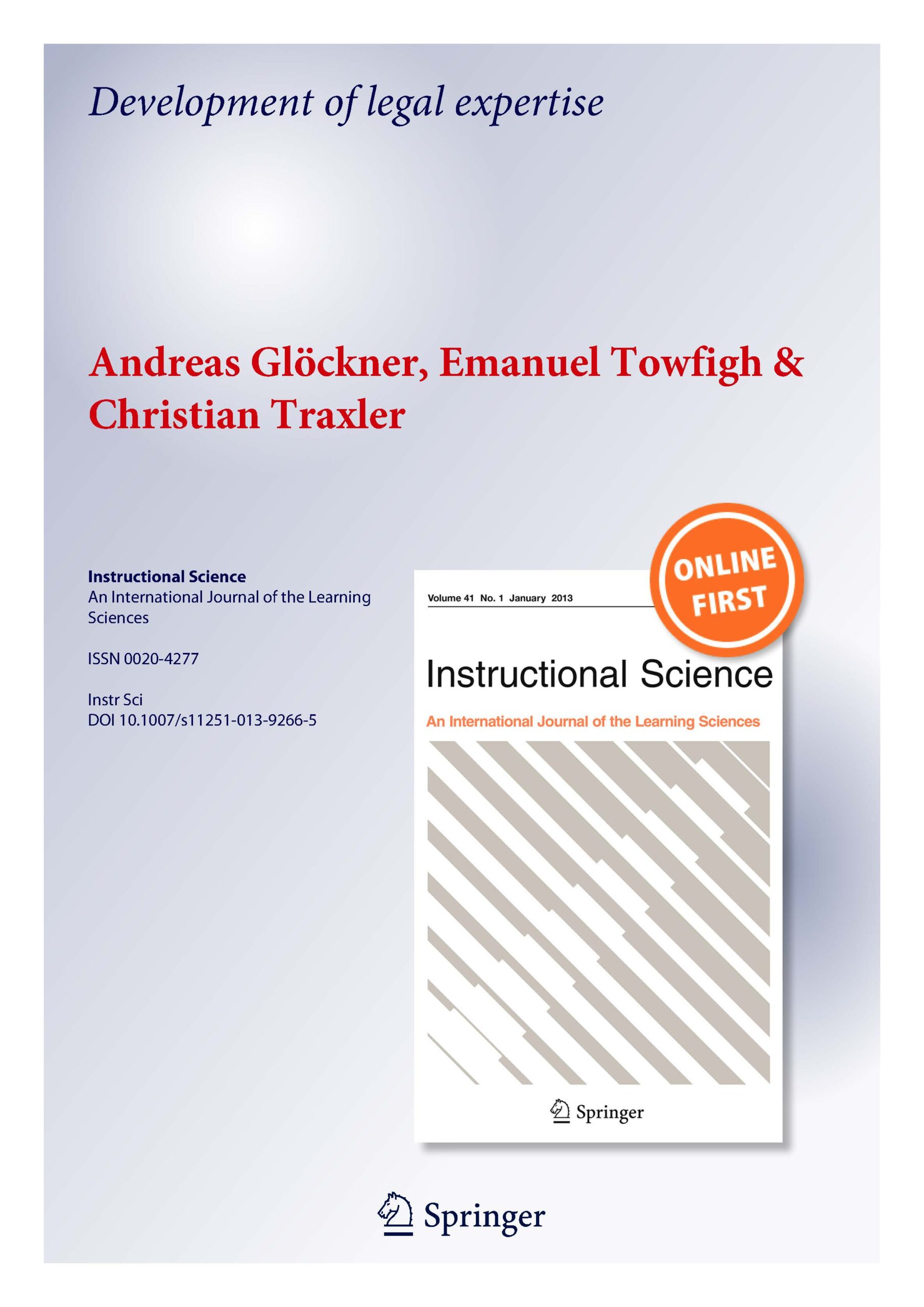joint work by Andreas Glöckner, Emanuel Towfigh, Christian Traxler
Instructional Science, Vol. 41(6) (November 2013), pp. 989-1007 (open access) | Download PDF
Received: 12 April 2011 • Accepted: 3 January 2013 • Online: 12 January 2013
Abstract
In a comprehensive empirical investigation (N = 71,405) we analyzed the development of legal expertise in a critical 1-year period of academic legal training in which advanced law students start practicing to solve complex cases. We were particularly interested in the functional form of the learning curve and inter-individual differences in learning. Performance increases monotonically with the number of practice exams following a slightly concave learning curve without any considerable kinks. Considering the performance development over time, however, the curve is not monotonic and shows intermediate drops in performance. We provide evidence which suggests that these drops are due to cyclic drops in motivation. There are about equally sized marginal effects of practicing law exams in general and practicing exams in the specific area of law. However, students with high (vs. low) initial performance profit more from practicing exams within a specific area of law whereas students with low initial performance profit more from practicing exams in general. The concave increase in performance with the number of practicing exams is mainly driven by individuals with low initial performance. Those with high initial performance mainly display a linear learning trend. We discuss the practical implications of these findings for academic legal training.
License: OPEN ACCESS
The article is published under the Creative Commons Attribution license which allows users to read, copy, distribute and make derivative works, as long as the author of the original work is cited. You may selfarchive this article on your own website, an institutional repository or funder’s repository and make it publicly available immediately.
